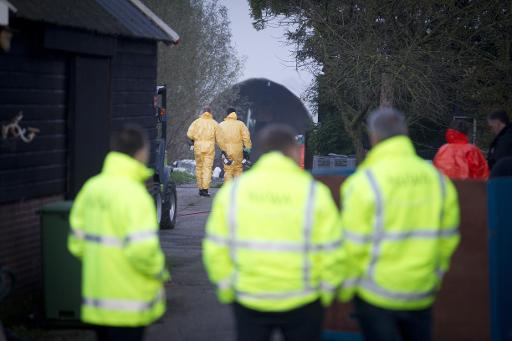The Dutch authorities on Saturday ordered the preventative cull of 8,000 ducks amid fears that a bird flu outbreak could spread to the country’s poultry heartland.
A farm at Kamperveen to the northeast of Barneveld, one of Europe’s most intensive poultry farming regions, has also been confirmed to have bird flu, although it is not known if it is the highly pathogenic variety previously detected only in Asia.
Two other farms around Kamperveen are suspected to have been infected.
Saturday’s cull was ordered because “a truck that visited the infected duck farm in Kamperveen visited the farm in Barnveld,” the ministry said.
Junior economics minister Sharon Dijksma said that she “did not want to take any chances given the duck farm’s location in the concentrated poultry farm area of Barneveld.”
An outbreak of the H7N7 strain of avian flu in 2003 severely hit the Netherlands with health authorities destroying some 30 million birds.
Switzerland on Friday said it was banning chicken imports from the Netherlands and Britain, where there has been a similar H5N8 outbreak at a duck breeding farm in Yorkshire.
Belgium has ordered poultry owners to confine their birds as a precautionary measure following the outbreak in the Netherlands.
Some strains of avian influenza are fatal for chickens, and pose a health threat to humans, who can fall sick after handling infected poultry.
The H5N1 strain of bird flu has killed more than 400 people, mainly in southeast Asia, since first appearing in 2003.
Another strain of bird flu, H7N9, has claimed more than 170 lives since emerging in 2013.
There are some 95 million chickens on Dutch poultry farms and egg exports totalled some 10.6 billion euros ($13.2 billion) in 2011, according to the latest Dutch statistics.

COMMENTS
Please let us know if you're having issues with commenting.